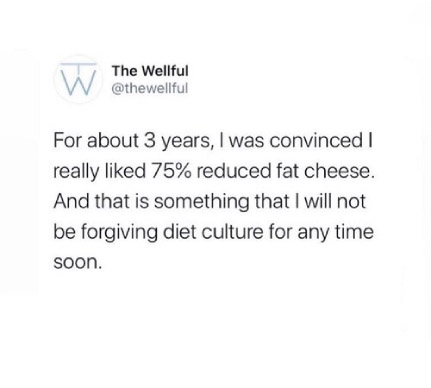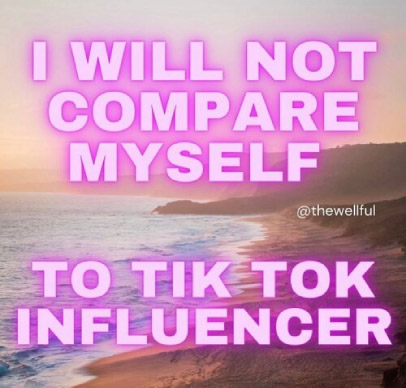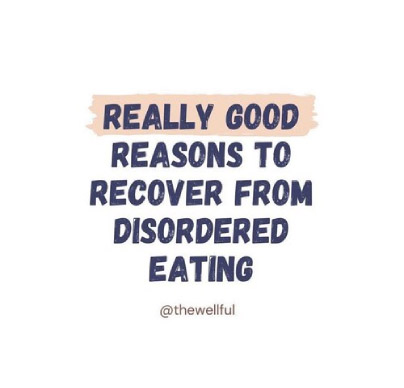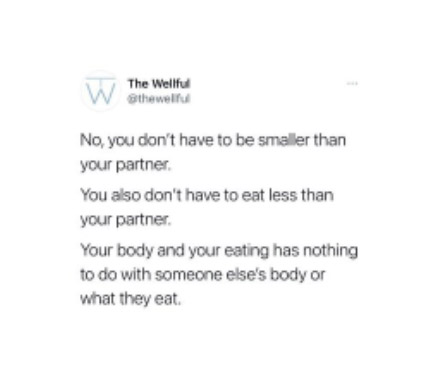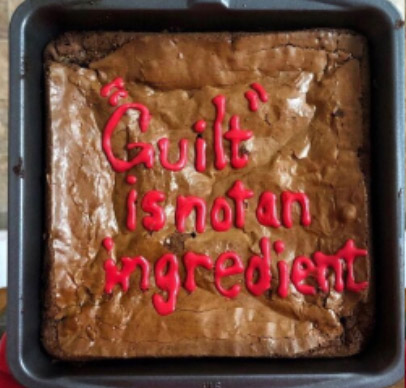Many of us have experienced food challenges or what many of my clients describe as a ‘weird’ relationship with food, at least at some point in our lives. Whether it’s turning to food to cope with distressing emotions, restricting food as a way to feel in control, or feeling overwhelmed by the conflicting food rules of past diets, there are many reasons you might want to have a more peaceful relationship with food. If you’ve noticed a not-so-great relationship with food in yourself and want to change it, I’m here to help. As a registered dietitian specializing in eating disorders and food intolerances, I understand how hard it can be to change your relationship with food. But we’re going to do it anyway. You deserve to live a life free from food fear and obsession. Our work together can help you get there.
Eat Regularly Throughout The Day
Before you join the latest TikTok or social media diet trend, green’s powder or diet – ask yourself, “Am I eating enough?” Before we can eat “better” or improve our relationship with food, feel less out of control, feel more confident in our food choices, we need to ensure we are giving our bodies enough energy throughout the day. Start by noticing if there are long gaps between your meals and snacks each day. Typically, bodies do well when we eat every 3-4 hours. Once we go beyond that we generally will feel overly hungry, be more likely to feel out of control around food (a natural response to restriction) which can spur critical self talk, guilt or shame.
Neutralize Food Labels
Labeling certain types of food as either “good” or “bad” won’t do anything to change your relationship with food; in fact, it could just make it worse. The fact of the matter is that food is not moral. It isn’t good or bad; it just is. Eliminating food labels and taking a non-diet approach may help you become less fearful around all types of food and could improve your overall viewpoint on how you approach eating.
Practice Self-Compassion
Be kind to yourself throughout this process. Understand that changing your relationship with food is a journey, and there will be ups and downs along the way. Remember that you are not defined by your eating habits and believe in your ability to make positive changes.
Get Curious – Not Judgemental – About Your Eating
Take some time to reflect on some of your eating habits. What influences when, how much and what you eat at a given time? Do you tend to reach for or push away food when you’re stressed, nervous, or angry? These aren’t things to judge, just to notice. Do you eat based on the time of day, hunger, convenience? It might be a combination of all three, what comes up for you? Eventually you’ll start to see the patterns around food choices. You might be thinking, “I always wait to eat lunch at noon but I’m often feeling hungry around 11am.” Or, “I try to push through the first half of the day and wait to eat until 11am but I also notice feeling really really hungry by the time I get home at the end of the day and I feel really out of control.” Noticing what influences your eating and choices throughout the day helps give us more context and awareness which can make room for some compassion, potential adjustments or understanding around changing your relationship with food.
Embracing Additional Coping Mechanisms
Again, food is meant to be pleasurable, enjoyable, comforting. Food is connected to traditions, fond memories, and celebrations. Like any coping mechanism, we want more than one that we can use and lean on when we need it. I talk with clients about building their own “feel good list” of things that they can do when they’re having a hard day. Include food on the list – like a favorite recipe or your favorite take-out order in addition to other things that feel soothing. This way, when you’re experiencing hard emotions or distress, you have options and can select what you think will or Talk therapy, art therapy, and other creative outlets could help you manage the difficult feelings that come up around your relationship with food and body. Acknowledging how you feel around food is vital for improving your relationship with it. Whether it’s through collage, drawing, creating music, or writing, find a way to get your feelings out of your head so they don’t fester.
Mindful Eating Tips
One effective way to change your relationship with food is by practicing mindful eating. I always want to clarify that when I say “mindful eating” I do not mea: tricking yourself into eating less, or that the only way to eat mindfully is to eat in a completely austere, boring, unrealistic environment. What I do mean, by mindful eating is applying tools – maybe one at a time, maybe a few at once, maybe every once in a while – to your eating experience to allow yourself the opportunity to feel more connected to your eating, your hunger and observe how it feels to you. Feel free to think of this example as an experiment you can do one day when you have or intentionally carve out some extra time around a meal. Try to bring your non-judgmental awareness to the experience to observe and see what you notice. You can use the starter “I’m noticing…” (and try to notice if there are harsh or critical judgements coming up like “I always…” or “Ugh I can’t even…” – this is a practice and you’re learning).
Mindful eating involves paying attention to your body’s hunger and fullness cues, as well as the tastes, textures, and smells of the food you eat. By slowing down, tasting each bite, and being fully present during meals, you may find that eating can become more attuned and potentially less stressful. This, in turn, could change your relationship with food. Tuning into these aspects of eating can help you to develop a more positive and more satisfying relationship with food. Here are some mindful eating tips to get you started:
- Avoid distractions: Minimize distractions while eating, such as watching TV or scrolling through your phone. Instead, create a calm and peaceful environment for your meals. This isn’t how all meals will go because we are humans and that not so realistic but for this exercise, try to tune in without tuning out.
- Take a breath: How often do we sit down to eat and feel go, go, go? Sit back in your chair, notice your feet on the floor, take a look at the food you have in front of you.
- Check in: How did you decide now was the time to eat? The time on the clock, your stomach growling, this was the break you had in the day? What signs of hunger do you notice for yourself, are you in the mood for anything in particular?
- Engage your senses: Notice the colors, smells, and textures of the food on your plate. Take the time to appreciate what your meal looks like, smells like, and even feels like while eating it. the appearance and aroma of your meal.
- Listen to your body: Slow down and tune in to your body’s hunger and fullness signals. Try to determine your level of hunger prior to eating and subsequently gauge your level of fullness after a snack or meal. This is a practice – not a perfect science – you’re gathering information and learning as you go.
- Pause and check in: Take breaks during your meal to check in with your body. Assess your hunger and fullness levels so you really stay present.
- Reflect: What do you notice during and after this experience? Any thoughts? Worries? Narratives about this eating experience? These can be helpful to journal or write some notes about so you can reflect and process this yourself, or with your registered dietitian.
Seek Support
Changing your relationship with food can be challenging, which is why it can be extremely beneficial to seek out support from professionals like a registered dietitian or a therapist. Here at The Wellful, we’re devoted to providing you with guidance, empathy, and resources to help you on your journey towards establishing a positive, sustainable relationship with food.
How to Change Your Relationship With Food, for Good
At The Wellful, we provide compassionate nutrition therapy to help you develop a healthy relationship with food and your body. We’re here meet you where you are and offer a judgment-free space to explore your unique needs. Working with a registered dietitian like Brenna could change how you approach food and body not just for now, but forever. To get started, schedule a free 15-minute consultation with Brenna. You can also call The Wellful at 925-725-2761 for additional support. We look forward to working with you.






